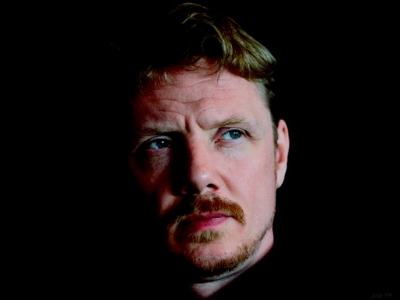Bio
Bjarni Bjarnason was born in Reykjavík on November 9, 1965. He lived abroad while growing up, but started publishing poetry in Icelandic newspapers and magazines as a teenager. He also wrote a play at the age of twenty that was staged by an amateur theater group in Iceland. In 1989 Bjarni sent forward his first book of poetry, Upphafið (The Beginning) and later that year his book, Ótal kraftaverk (Countless Miracles) which contains prose poems, appeared. Since then, Bjarni has published other poetry collections, short stories and novels. He has also written a collection of one-act plays, called Dagurinn í dag (This Current Day).
Bjarni's second novel, Endurkoma Maríu (Maria's Return) was nominated for the Icelandic Literature Prize in 1996 and two years later he received the Tómas Guðmundsson Award for the novel, Borgin bak við orðin (The City Behind the Words). Bjarni has also received a short story award from the Icelandic Broadcasting Service and his novel, Mannætukonan og maður hennar (The Cannibal Lady and her Man) won the Halldór Laxness Literature Award in 2001. Bjarni was one of the founders of the literary magazine Andblær, a magazine that focused on writings by young authors.
From the Author
First publication
When I was fifteen years old, the summer after I moved to Iceland and had left parental authority behind, I got myself a job as a farmhand. The farm was a beautiful one near Laugarvatn which today has been gobbled up by bungalows, and I liked the quiet farmer. The farmer´s wife was somewhat unhappy in the countryside, as was her ten year old son from a former marriage. The younger boy, the farmer´s own son, was quite happy with his life on the farm. The elder son did not have much to occupy himself with, except tormenting the farmhand, but it did not bother me too much. When I came in for the afternoon coffee break I never got anything but half stale cakes that where removed even before I had a chance to seat myself properly at the table. The hot meals where nothing to write home about, often we got salted horsemeat which originated from an old nag whose sorry old tale was often told during the meals. Sometimes the stale cakes where put on the table instead of a proper lunch or dinner. I did not have the courage to complain about this and stayed mostly quiet and ignored the rantings of the farmer´s wife. But one day things changed, I came in for the afternoon coffee break once I had parked the old tractor up the hill above the farm. No sooner had I parked myself at the table when the old rust heap rolled across the yard and bounced down a field. I did not know that the handbrake was faulty. The tractor stopped in a hilly uncultivated piece of land and one would have thought that that would have been the end of the story. But the farmer´s wife took it upon herself to accuse me of trying to kill her one year old baby. She maintained that the baby could have been playing in the yard, which incidentally would have been criminally negligent since there were always cars arriving flanked by numerous dogs. I had never seen the little princess on her own since she could not yet walk. Now all of a sudden I had intended to kill her as she took a stroll on her own across the yard and made it look like an accident. The farmer´s wife announced that she did not serve food to such malevolent criminals and I did not get much of a feast during that coffee break. That evening I decided that the next day would be my last day of work in that employment. In my diary I wrote something to the effect that since I did not do much on the farm besides tormenting the sons and attempt to kill infants I was probably not of much use anyway. To this I added that I could not face any more encounters with the ancient dustcart nag at the dinner table. I decided to take off, go to Reykjavík and get work somewhere where I at least could get a decent meal. I started the next day as my usual self, but at noon time the farmer surprised me by asking me for a walk up to the meadow. Up to that point we had not been in the habit of going for chatty walks but I respected the hard working and polite man and joined him. He remains silent until all of a sudden he turns to me and says:
"The boys will not bother you again, Bjarni dear, I have had a word with them." I had never breathed a word to anyone about my troubles with the boys. A little bit later he adds: "It is impossible to work hard if the food is no good. There will be plenty of good food during the summer." We looked at the mountains that fenced off the horizon, until he announced in a factual tone: "Of course, we all know it was nothing more than an accident this thing with the tractor yesterday. I should have warned you about the useless handbrake." He trampled the ground nervously and finished with: "You are not leaving tonight, are you?"
Someone had dug up my diary and worked his or her way through my bad handwriting. I was shocked and took deep breaths. At the same time it all seemed so natural, due to the sincere way he brought things out in the open. Because of this sincerity I doubted very much that he himself had peeked in my diary. Both because he was not the kind of person who would take the time to pour over the badly written diary of the farmhand, and also he would not have had time to do so that morning since the work at the farm was in abundance. His wife must have told him my thoughts.
It was a bit embarrassing to go and have lunch after being so completely emotionally exposed. But unusually, the farmer´s wife did not have any problems. The food was delicious. It was not insinuated that I should really be at work during mealtimes. The farmer´s wife did not exactly offer me more food when I had emptied my plate, but she pushed the serving dish with the lamb discreetly in my direction. For the rest of that summer the food remained excellent and the farmer´s wife sweet and attentive. I guess I should be quite content with this first reaction to my writing, shouldn´t I?
Bjarni Bjarnason, 2001.
Translated by Dagur Gunnarsson.
About the Author
The Wonderlands of the Imagination. On the works of Bjarni Bjarnason
"In the beginning was the imagination?"
The first published work by Bjarni Bjarnason was a book of poetry called Upphafið [The Beginning] published in 1989. The book has 39 poems that tackle subject matters Bjarni was to work with further in his later work. The first half of the book is called Ljósmál [Matters of light] and there the author puts forward his amusing ideas on life, love, relationships, poetry, words, language, faith and god. Bjarni plays around with clever wordplay, but also examines searching questions about human right to existance and what human existance in this world means. In the latter half of the book which is called Upphafið [The Beginning], these speculations are more prominent, the mood darkens and the search for some sort of a purpose takes over. The first lines of "The Beginning" are symbolic of the world Bjarni draws up in his work and gives insight into the fantasy which is prominent in his major works.
sko
í upphafi
í upphafi varef það var eitthvað upphaf
þá var það frumlegtnei sko
í upphafi var ímyndunaraflið..
í upphafi var ímyndunarafliðundir áhrifum frá..
undir áhrifum fránei sko
[look
in the beginning
in the beginning there wasIf there was any beginning
then it was originallook here
in the beginning there was the imagination..
in the beginning there was the imaginationunder the influence of..
under the influence oflook here]
Here Bjarni puts forward a consciousness that wonders about the beginning of existence and what original power of creation is behind it. The basis of surviving in this world is an imaginative use of the imagination and there is always visible a glimt of a higher power or another world that nonetheless does not provide any answers, only possibilities. The narrator does not come to a concrete conclusion, but continues his search. The world presented in Ótal kraftaverk (1989; Countless Miracles) a book of prose, is much darker and there the author examines quite openly the imperfections of people and the apparent reality they have created for themselves. God also gets his share of the blame, since he created man in his image and must therefore be just as faulty and wound up in his own vanity. The author rages against the materialism of modern life and the fact that modernity has frozen the Western world in standardized images. He discusses how quickly man becomes a slave to routine and a comfortably thoughtless state. Even though Bjarni analyses the world thus, he does not fall into the same trap as so many of his predecesors in Icelandic literature, that is to see some imagined solution in a romanticized and long-gone culture of yore. His analysis is more concerned with the nature of man and whether it will always be the case that mankind strives to move forward, a force that will destroy us.
In the poetry book Urðafjóla (Stone Violet, 1990) there is less of this doom and gloom and the same can be said of the collection of short stories Í Óralandi [In the Dream Land] (1990). The poems are often about love, how it improves and papers over the faults and cracks in people and keeps on living in some undefined image and sense. In its most powerful form it is life-giving and can even cheat death. The short stories in Í Óralandi are diverse in their subject matter and even though there is a serious undertone they are humorusly written and the author can easily mock his own solemn style and endless search for universal answers to life´s questions. The stories show the mark of a strong imagination, originality and a strong will to create. In "Messíasarefninu" (Messiah material) Bjarni contemplates how difficult it is for modern prophets to withstand the temptations of modern society and what such a reality does to innocent and good men who mean well. This theme rears its head again in another novel by Bjarni, Endurkoma Maríu (The Return of Mary, 1996), there the evil urges of man manage to get even the reborn Mary, mother of Jesus, banished from her sinful world. In Þorpið (The Village) Bjarni analyses brilliantly a typical small village where there is only room for certain standardised ideas and any deviation is doomd to failure. Here, love does not bear hope, but death.
The characters that Bjarni works the most on have the endless search for some truth in common, a truth that could fill their inner void. The main characters are vagabonds who have no place to call their own and are outsiders in their own environment. Their perception and outlook make them outsiders who give a fresh contradiction to traditional ideas about reality and clarify it at the same time. In his first novel, Til minningar um dauðann (In Memory of Death,1992) the Son of the Shadow investigates many aspects of human life in his wanderings from one place to another. He uses silence as a weapon and lets talkactive characters reveal themselves one by one. The Son of the Shadow lives in his restricted world of ideas that only the readers have access to but the manyfold characters of the book give us insight into different attitudes, and thus the result is a cluster of speculations on the nature and meaning of life on this earth.
Dagurinn í dag (This Day Today, 1993) is a collection of monologues where humorus conversations are transported to a strange environment. In the monologues Bjarni tackles among other things the alienation of modern mankind, the cruelty of life and its lack of communication. With this clever stagings the author forces people to expose their own faults by putting them into a surprising context. A year after the monologues were published he collected all his major published work in one volume Vísland. He made a few changes to some of the work in addition to some new material and essays. The book is vast and gives a good overview of the author´s main subjects during his formative years. In these first works, Bjarni analyses human school of thought and the ideologies people have created through the ages. The books are bursting with references to philosophy, history, religion, and the cultural world as Western countries sense it. Different aspects of the human consciousness hold fierce debates with a higher power, where they argue about whose responsibility creation is. People try many times to step away from a highly flawed world but the author´s conclusion is that they are themselves the beginning and end of everything they can sense.
In the year the collection Vísland was published Bjarni started, collectively with others, the magazine Andblær which has been published regularly ever since. Bjarni wrote the publication´s manifesto and there he emphasises the role of "dream literature". He states that dreams are the original system of symbols and likens them to the maternity ward of the mind. Bjarnason follows this up with his contributions to the magazine and the dream concept, the way the author defines it, is also to be found in his later novels, especially in Borgin bak við orðin (The City Behind the Words, 1998) and in Næturvörður kyrrðarinnar (The Nightwatch of Stillness, 1999).
The kingdom of Immanúel Merkúríus
Bjarni Bjarnason uses the power of fantasy quite deliberatly in his work. He creates a world that breaks up traditional perception of reality and shows everyday actions in a new light. He uses this new world to mirror reality in order to show the pros and cons. Bjarni also uses fantasy as a tool to research the subconscious and there he ventures close to dream literature. He has called dreams "a realistic description of total fantasy" (Andblær 1994: 4). In the essay "Inner and outer reality" published in Vísland, he talkes about the tension between inner and outer reality. It is this tension that makes it so difficult for many of Bjarni´s characters to find peace in reality.
"People have such a blind belief on the outer communal-aggreement-reality that they have a tendency to think that their inner world is ruled by the same laws. Outwardly no one gets away with unbound wit and endless willpower, such efforts are always smashed and the person in question will have to be tolerant of a democratical form of government, which means that he has to negotiate and wait. This dulls the inner reality of many who drift in a half unconscious belief that their inner reality is also controlled by a time consuming democracy. Whereas in reality there is nothing within people that prohibits unbound wit and endless willpower."
(477)
It is this unbound wit that is the characteristic of the novels, Borgin bak við orðin and Næturvörður kyrrðarinnar. The main character of the books is prins Immanúel Merkúríus. Despite his royalty he is expelled from his kingdom because of his desecration of many centuries´ old traditions. Therfore he wanders all alone around a big and unknown city and earns his keep by telling people stories from his father´s valley. Many stories are about Immanúel´s sister who was sacrificed so that the king´s men could invent the original language in the middle of a dark and deep silence.
Silence plays an important role in the works of Bjarni Bjarnason and in the essay Vísland he tries to explain the human consciousness in terms of solitude and stillness: "Consciousness is what you find after having spent a long time in your own company, in a black darkness and absolute stillness" (484). Such was indeed the fate of Immanúel´s sister in Borgin bak við orðin because her death was meant to bring the worlds first language to the people:
Faðir minn segir að tungumálið sé landslag sálarinnar og fyrsta landið hafi týnst þegar fyrsta tungumálið glataðist. En sé barn, af eðla blóði borið, látið við fæðingu inn í hina upprunalegu þögn muni það er fram líður mæla á fyrstu tungu heimsins, tungu guðs (21).
[My father says that language is the landscape of the soul and that the first country was lost when the first language was lost. But if a child, born of noble blood, is put at birth into the original silence it will with time speak the first language of the world, the language of god ]
Immanúel was not happy with the sacrifice of his sister and he therefore breaks with tradition in full knowledge of the kingdom´s holy rules, which in turn gets him expelled. While Immanúel is an innocent child, the transition from the kingdom to the city is natural. People who listen to the stories think they are vivid fiction and thus the young boy´s truth and beliefs are turned into some sort af circus act. The longer Immanúel thrives in the city the more he becomes infected by its influences. This creates a lot of tension between these two worlds that he has experience off. Most people around him try to persuade him to accept that the kingdom is a figment of his own mind and bit by bit he relents and gives in to the masses and becomes the victim of a female publisher who seduces him, sells him to her fellow females and tries to make money of his stories. Thus, he becomes a sort of a bourgeoisie robot against his own will. Immanúel is not adverse to this kind of life to begin with. He is a gigolo who gets paid for servicing women sexually and tells them beautiful stories at the same time. He has become a cog in the machinery of bourgeoise society and therefore dependent on time, duties, and the whims of others for the first time in his life. His only connection with the past is an old raglady and her daughter, Súsanna, who both believe that Immanúel´s kingdom is real. Immanúel and Súsanna become lovers, she thrives on listening to the stories about his litle sister, Immanúel whispers them to her and does his best to imitate and mime the characters in them. Immanúel keeps his gigolo job secret from her and when Súsanna finally finds out the truth she leaves him. Following that Immanúel searches for his roots and finds out that the kingdom is just as rotten as the reality he had been thriving in.
It is possible to read a great deal into the stories about the kingdom of Immanúel Merkúríus. The books are awash with symbols and allusions, but it is not neccesary to trace them to understand and enjoy the rich text. Bjarni is exploring man´s position in the modern world and what the future may hold. He explores the power of words, language, relationships, and fictional writing and the connection between dreams and reality, truth and lies. The fantasy is far from forced in the hands of Bjarni Bjarnason and the changes between different worlds natural, so much so that one hardly detects when the lyrical takes over and makes the fantasy world a natural continuation of the life known by the reader. Even if the two worlds are different and form striking opposites, there is one thing that binds them together and that is the fact that man lords over both of them. That is why the kingdom never becomes the perfect mirror of human life. Both of the worlds are rotten, each in its own way.
Unbound imagination
It cannot be said that Bjarni Bjarnason writes according to a certain literary tradition, although he often uses fantasy to show reality in a different light. His work are on many levels and often he has many stories on the go at the same time. He plays around in these digressions, stretches the story line and for that he uses differnt styles. The story about Immanúel is many things simultanously, an adventure, a fantasy, a love story and a thriller. He uses allusions to mythology and plays around with plots similar to those known in detective stories. This blend of different branches of literature has also found its way into the novel Endurkoma Maríu (1996) and in particular in his latest novel Mannætukonan og maður hennar (The Woman Cannibal and her Husband, 2001).
In Endurkoma Maríu, Mikael tells of his dealings with the girl María. María is an unusual girl and a lot indicates that she is Mary mother of Jesus, reborn.
A doubtful society forces the couple to go on the run, and it can be conjectured from the story that the good and pure can never thrive in the sordid world man has made for himself. The story is full of allusions to the Bible where the author is trying on common teachings of the church, and comparing them to modern reality. We can also spot many of Bjarni´s themes from his previous works. Mikael and María are vagabonds like The son of the Shadow, Immanúel and Hugi Hugason in Mannætukonan. The reasons for their wanderings are different but they all have in common the fact that they are looking for something that is meant to give their lives fulfilment. The characters fail in their task, they let things around them influence their own actions and stand alone in the last chapter. Perfection, in the shape of María, eludes Mikael, the fairy tale world of Immanúel Merkúríus crumbles and those he loved most dissapear and the intense search Hugi Hugason makes for forbidden love gives him nothing in return but the loss of his reputation. Their fates are not neccesarily tragic because their search was in vain. In his egotistical way, Mikael tries to aquire and live with a power that was not meant for him alone. The inner workings of Immanúel´s kingdom turn out to be rotten due to the weakness of those who built it and is therefore doomed. Hugi Hugason becomes the victim of his own vanity in his hopeless search for what turned out to be unrequited love. At the end of the books there is a sense of cleansing and a yearnful reconciliation, the characters have their experiences and are ready to return to the world of their own thoughts. The conclusion is that man is in no way badly off on his own with his own thoughts. It is rather his sick actions in the company of other men that give him grief.
These themes dear to Bjarni, can also be seen in Mannætukonan og maður hennar and there he goes further in his play with different literary formats. The first lines resemble a thriller, but soon disolve into a playful game where the author makes fun of the well known characteristics of both detective novels and love stories. The result is a querky blend which is exciting, funny, beautiful and sad. In the story, Bjarni puts the finishing touches to his "femme fatal" character, Helena Náttsól, but he has before flirted with similar characters in Judith in Endurkoma Maríu and Immanúel´s mother in Borgin bak við orðin and in Næturvörður kyrrðarinnar. Another characteristic of the smaller characters in Bjarni´s work is how one-dimensional they are. In most of his stories there are the super good and incredibly evil persons for the main character to compare himself with on his way between destinations. Such a characterisation is reminiscient of fairy tales, only Bjarni does not give his readers quite such a simple happy ending in his stories.
The works of Bjarni Bjarnason demand a lot of the reader who has to take an active part in the creativity to be able to enjoy the wonderous worlds offered by the imagination. The books are trying for the readers´ imagination and stretch the language often very near its breaking point. The author speculates with large fundamental questions about our existence and with the aid of fantasy he is able to mirror different worlds that show everyone their own faults. The books do not have a reproachful tone, the goal seems rather to be to create and let the imagination work far away from the demands of reality.
Bjarki Valtýsson, 2002
Translated by Dagur Gunnarsson
Articles
Articles
Neijmann, Daisy L., ed. A History of Icelandic Literature.
University of Nebraska Press, 2007, pp. 378, 448, 450-451
Awards
2001 - The Halldór Laxness Literature Prize: Mannætukonan og maður hennar (The Cannibal and Her Husband)
1998 - The Tómas Guðmundsson Literature Prize: Borgin bak við orðin (The City Behind the Words)
Nominations
1996 - The Icelandic Literature Prize: Endurkoma Maríu (The Return of Mary)
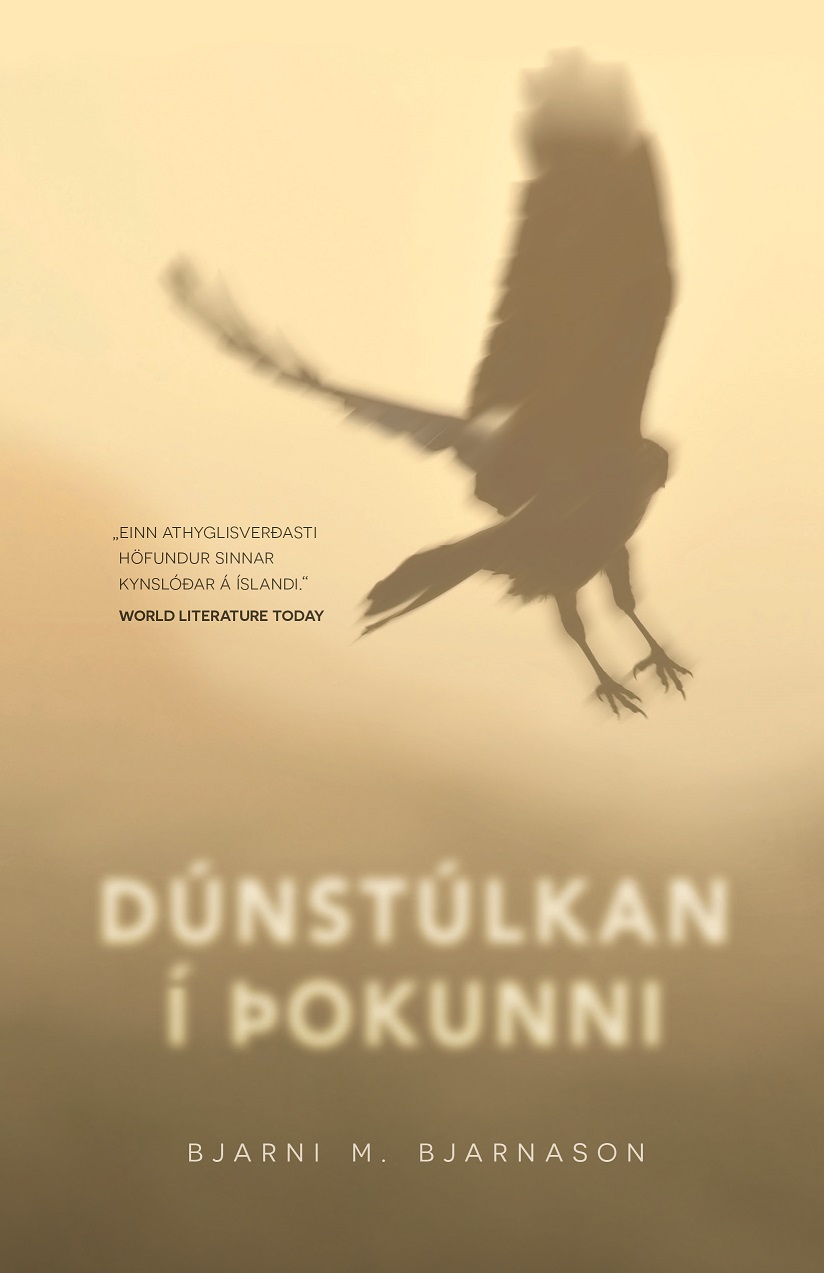
Dúnstúlkan í þokunni (The Feather-Girl in the Fog)
Read moreMinningarorð prestsins um Jón Mikaelsson voru svo dýrðleg og upphafin að Jói litli taldi víst að hann talaði um einhvern annan en föður sinn í helvíti.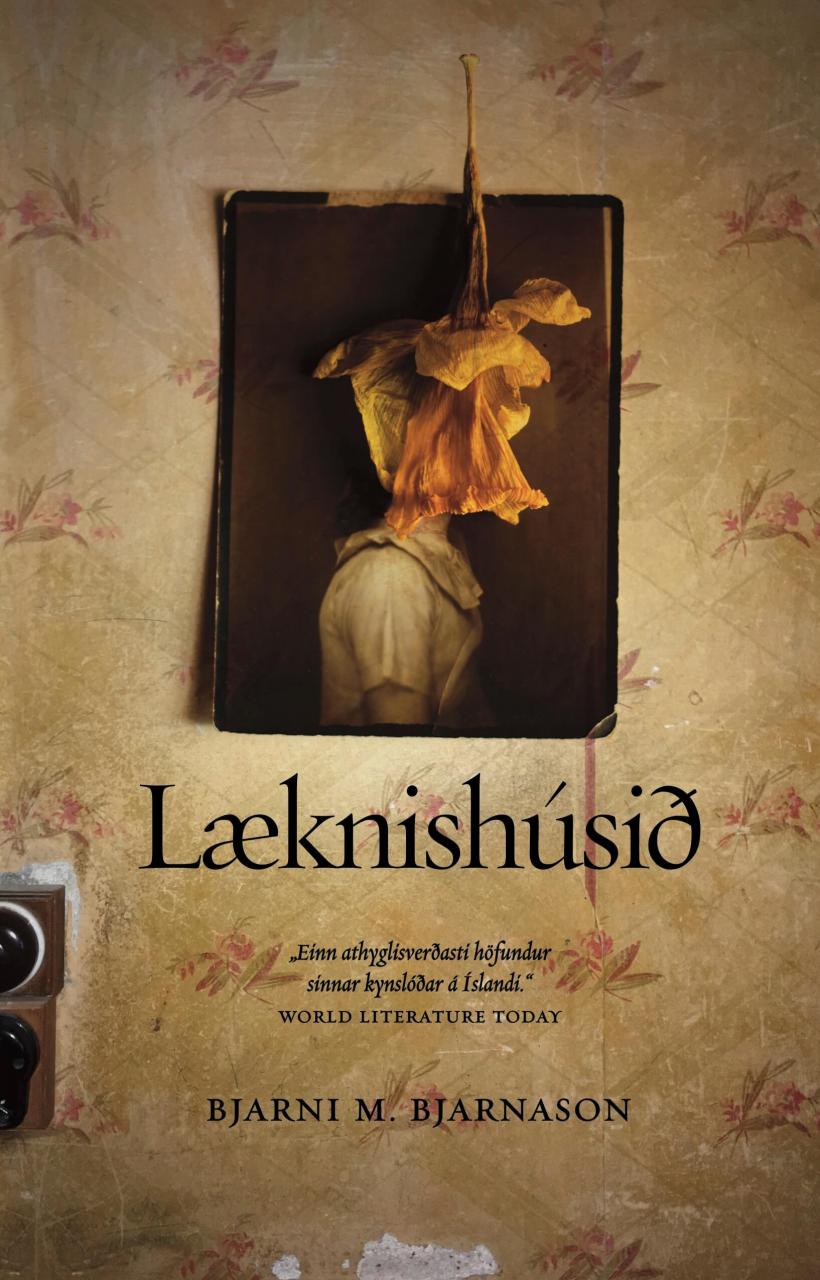
Læknishúsið (The doctor's house)
Read more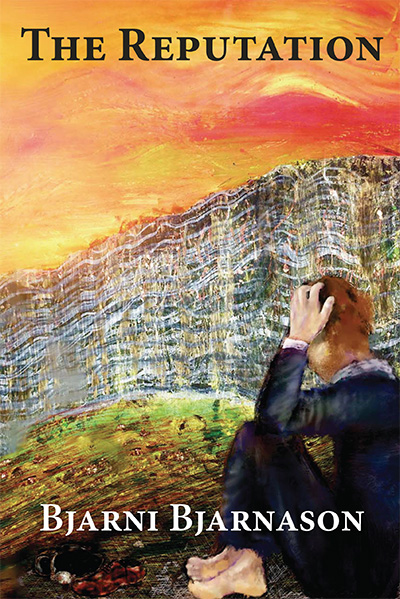
The Reputation
Read more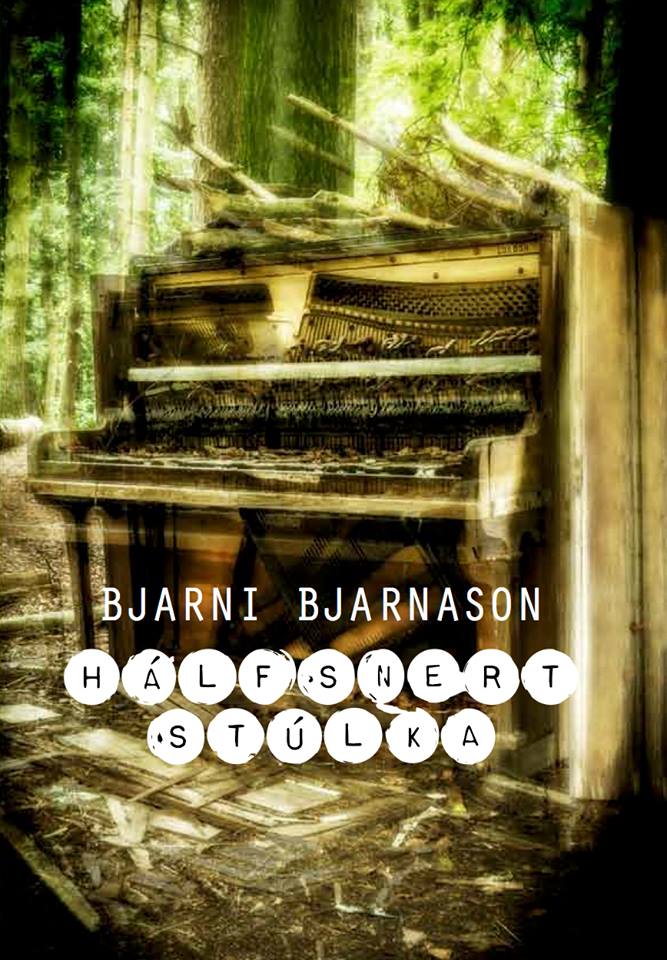
Hálfsnert stúlka (Partly Touched Girl)
Read more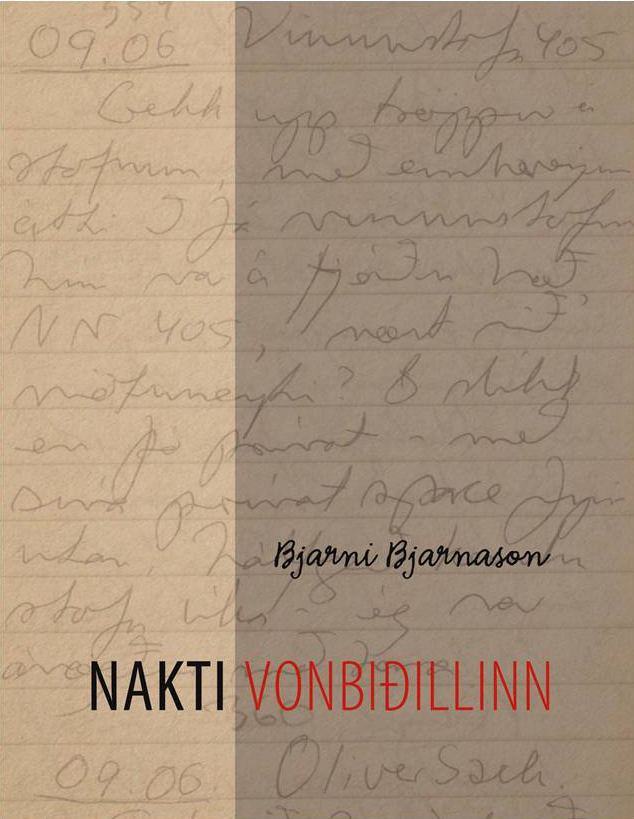
Nakti vonbiðillinn (The Naked Suitor)
Read more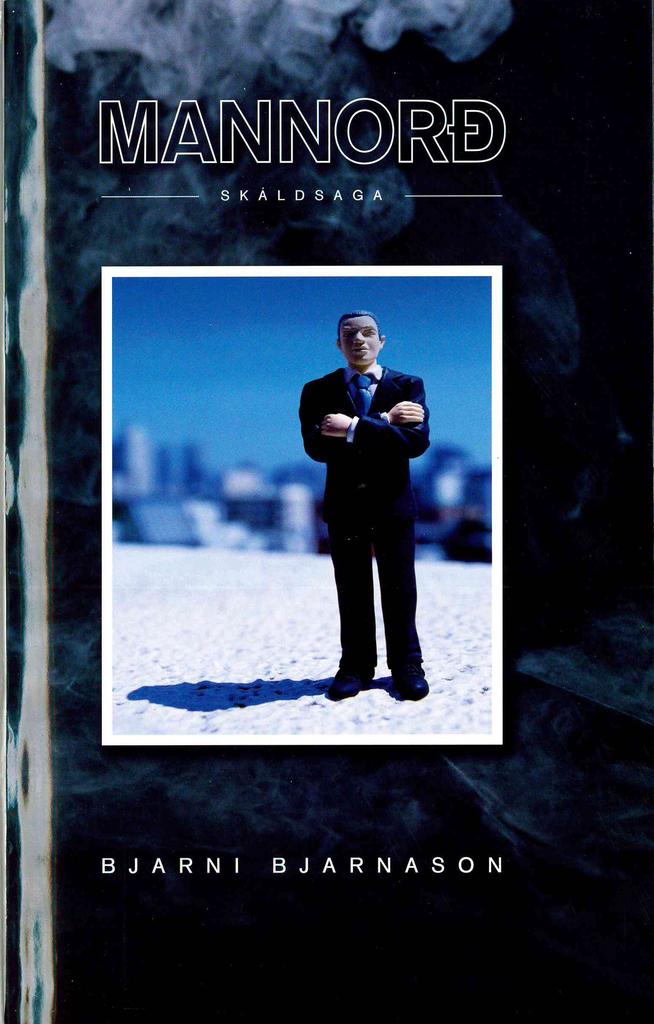
Mannorð
Read more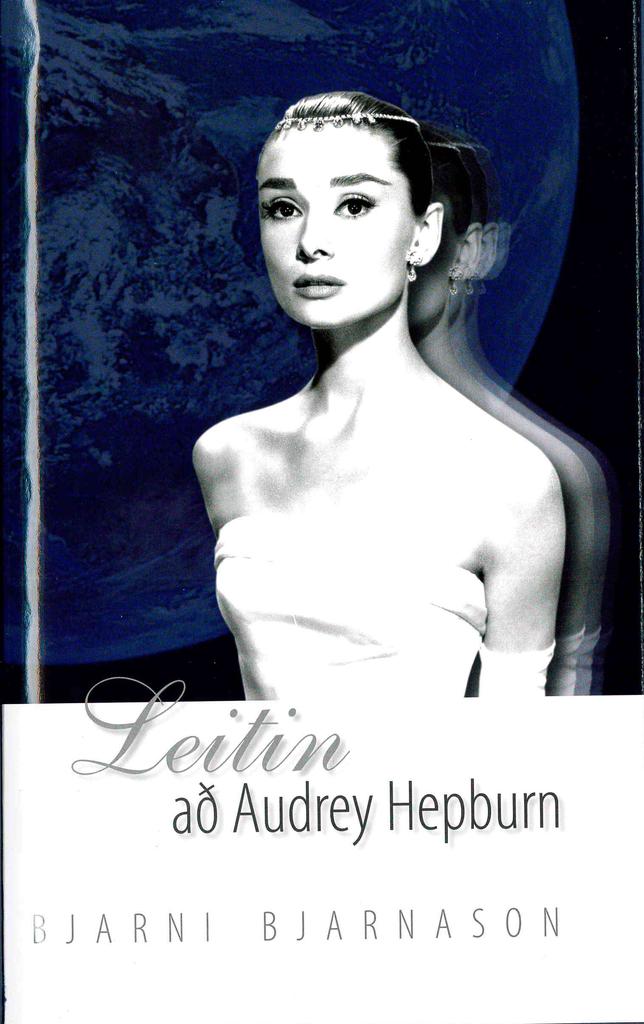
Leitin að Audrey Hepburn (The Search For Audrey Hepburn)
Read more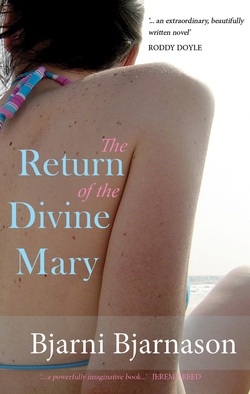
The Return of the Divine Mary
Read more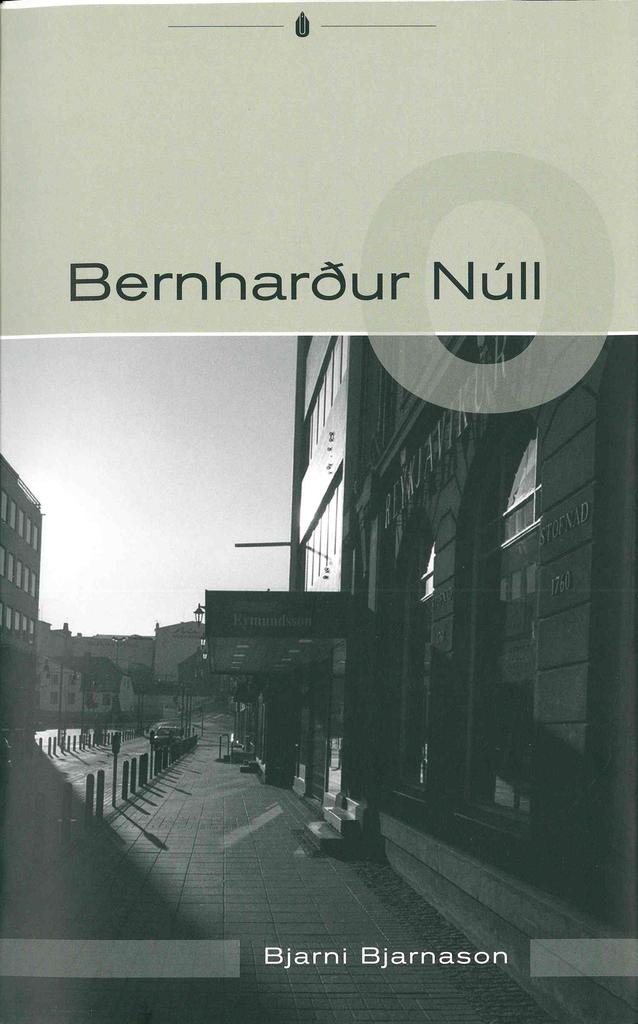
Bernharður Núll (Bernard Zero)
Read more
